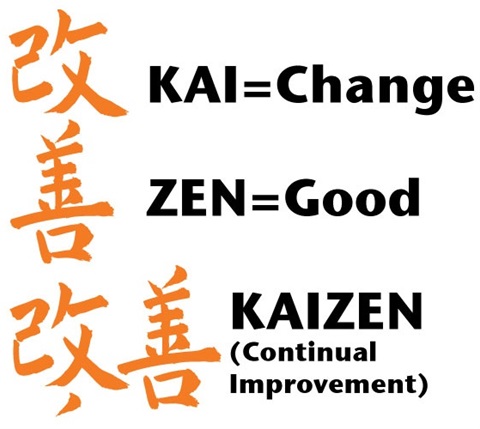Kaizen
John, a local from my hometown, came to my brother's tent during the largest fly-in in our nation, Oshkosh, WI, a few months ago. Significant attention is standard when a man talks important severe matters in a gathering of friends enjoying themselves. John asked if my brother and I had ever heard of "kaizen." That was a new word for both of us. Being sponges for useful information, we quickly learned a new word.
Kaizen (pronounced "ki zen"), according to Wikipedia "is the Sino-Japanese word for 'improvement" and means "change for better." Much of our current level of knowledge is not as advanced as we think. The ancient philosopher, Heraclitus of Ephesus (530-470 BC), was credited with stating that "The only thing that is constant is change," though said in varying ways. Moses, centuries earlier, referred to the change phenomenon in Genesis 8:22, though not by the word itself.
During our conversation, something surprising occurred to me. John mentioned that Toyota used this principle. That explained why "The Toyota Way" enabled the standard life-time drive-chain warranty could be a strong selling point for their automobiles. The high demands on workers involve doing something every day better than yesterday, constant improvement, ever how small. Well, there's one business application. What if we apply the principle to our personal lives, in our work, etc.? Every area in which Kaizen is used would improve significantly.




